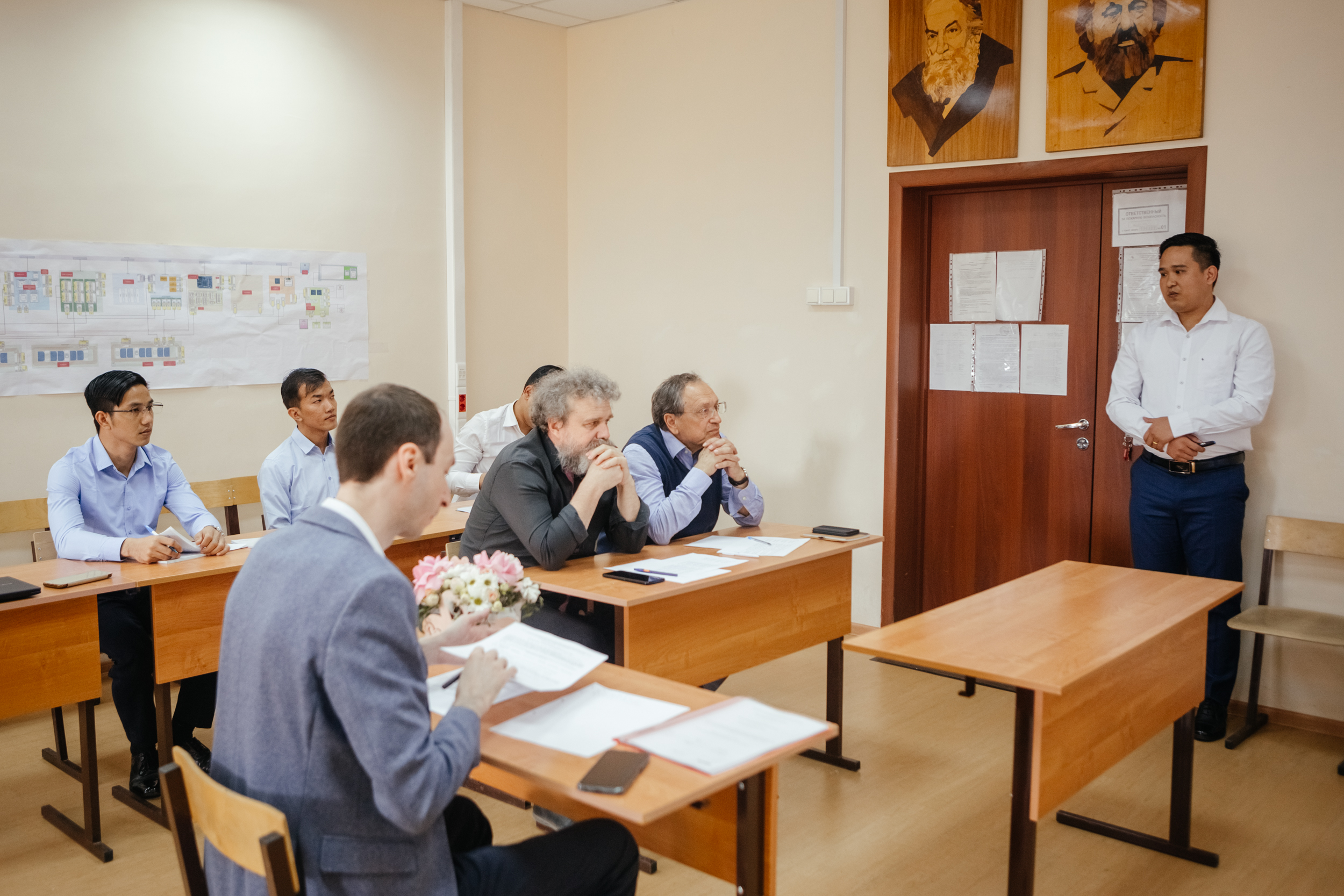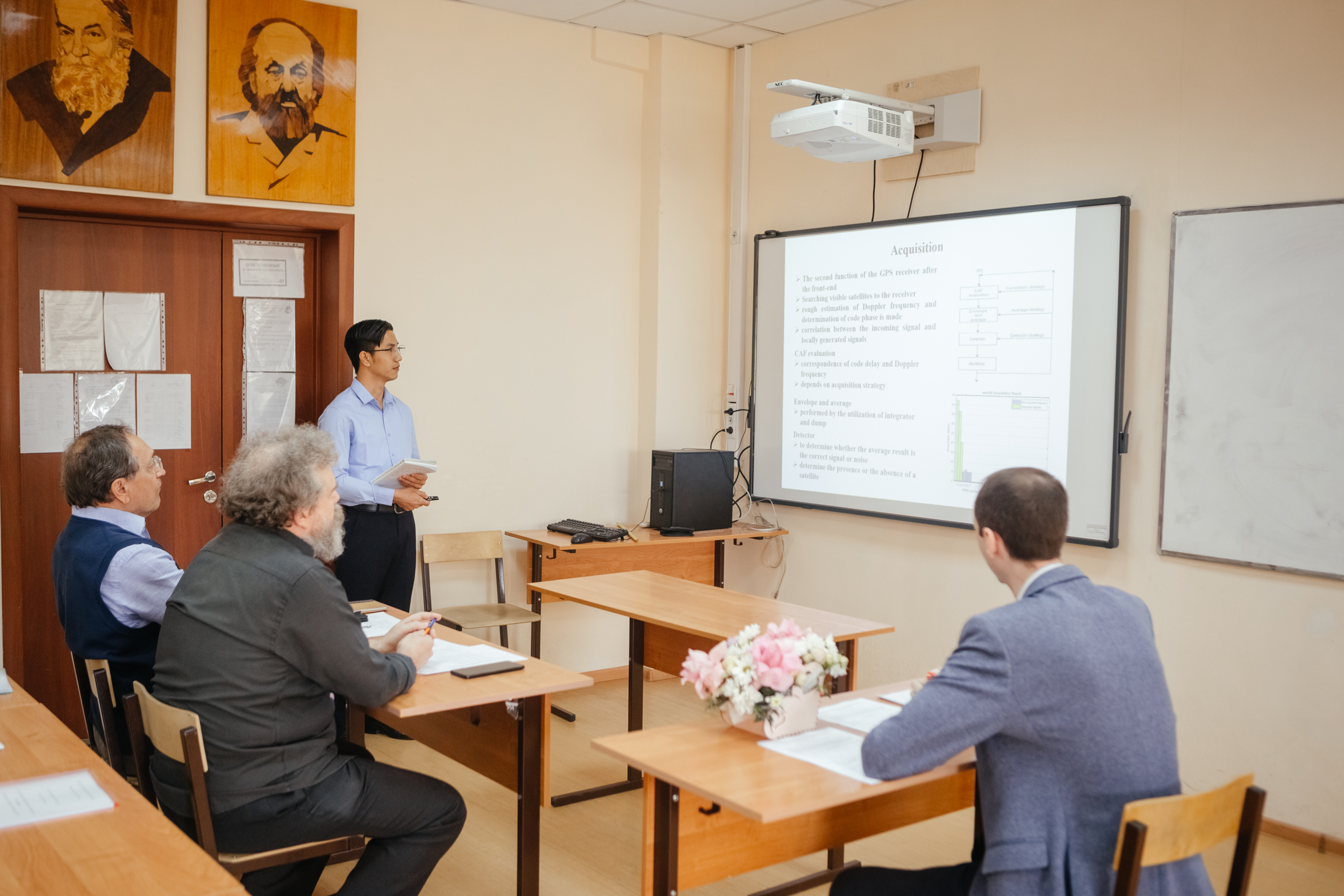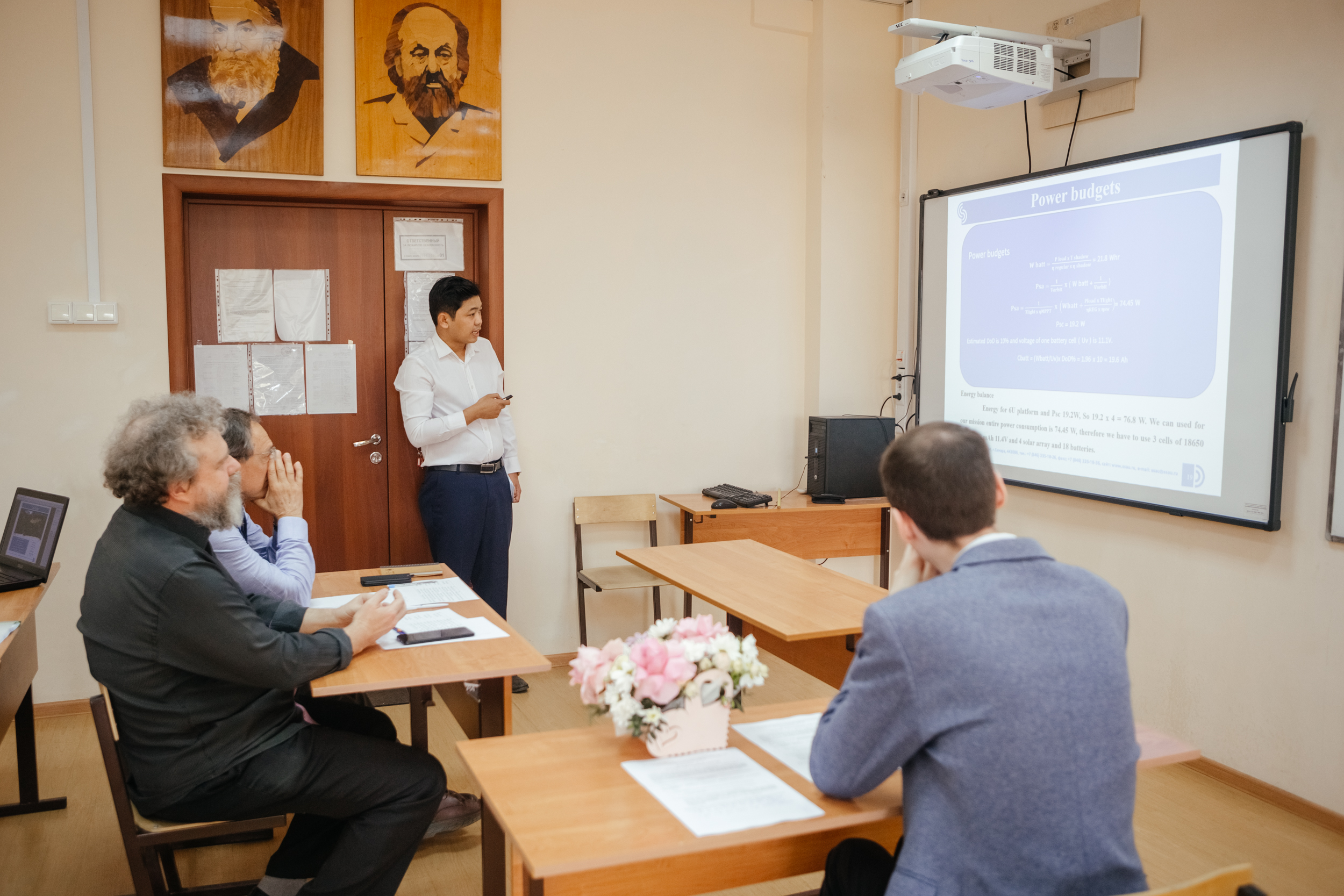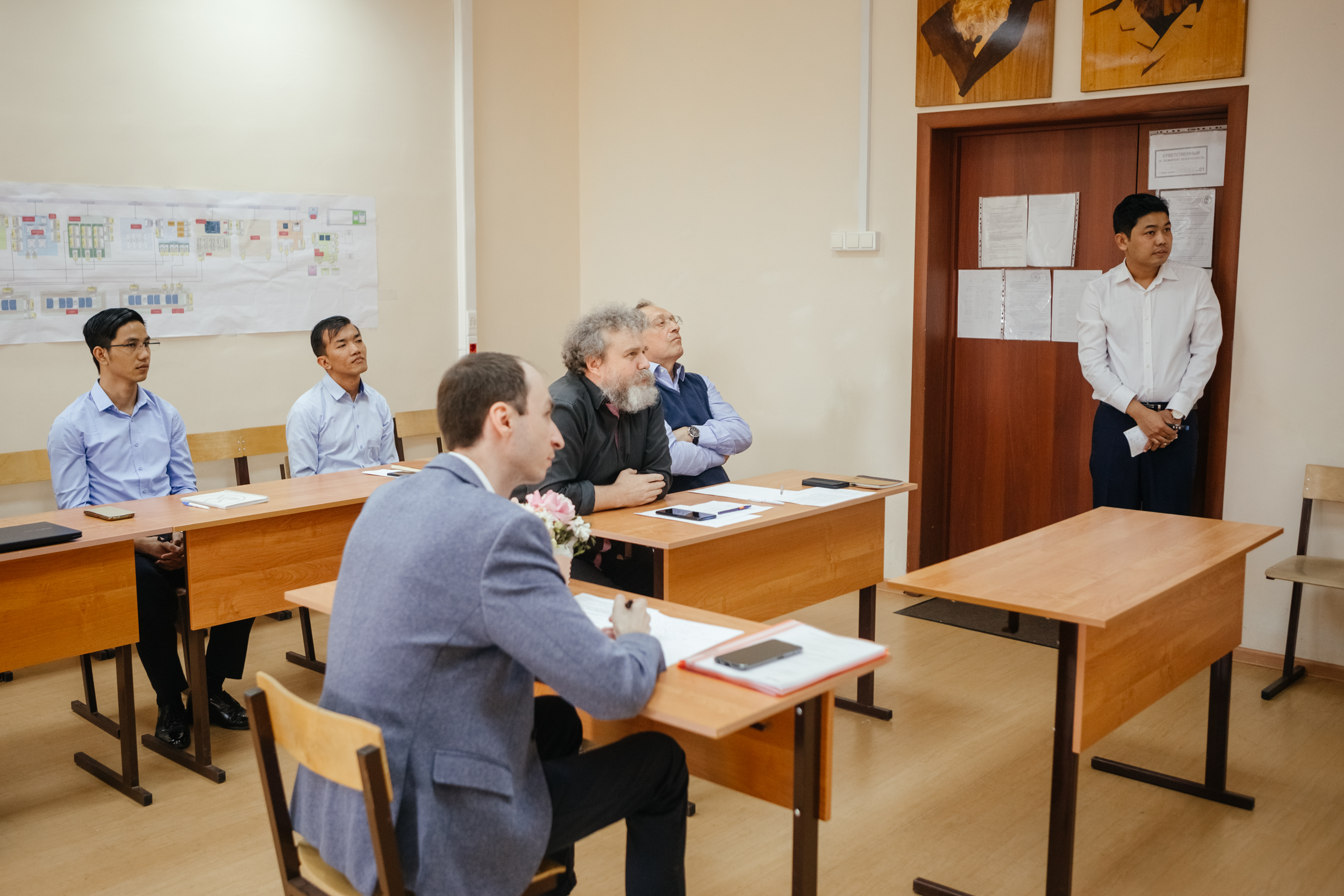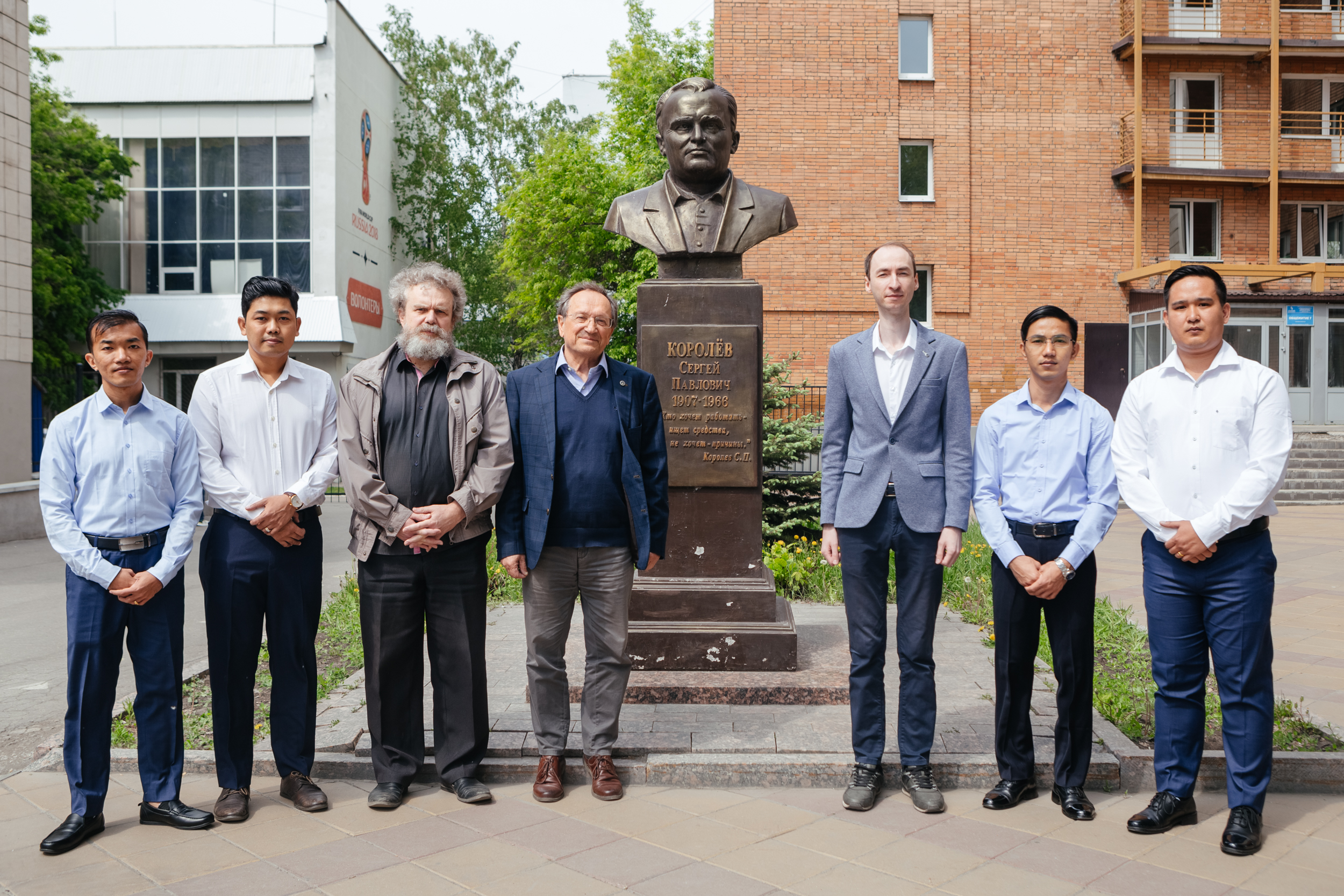It became possible to conduct training for employees of the Myanmar Space Center due to the joint work of the University with Roscosmos and Rossotrudnichestvo. At the Inter-University Department of Space Research engineers Htet Aung Linn, Zo Htaik Aung, Thu Raing Htun and Ye Myat Han studied the basics of spacecraft design and space mission analysis, as well as hardware and software development for the work with global navigation satellite systems. The education was arranged in English; the training was completed with a defense of nanosatellite draft projects and the diploma delivery ceremony.
“We have finished the training of a group of specialists from the Myanmar Space Center, and it’s quite a unique occasion. This group of four engineers was recommended to us by Roscosmos,” Professor Igor Belokonov, Head of the Inter-University Department of Space Research and Head of the Program, shared. “Based on the requests of the Myanmar Space Center, we offered them a nine month long educational program of a format designed by the UN Space Committee. It includes studying a wide range of space technologies with a focus on CubeSat nanosatellites and helps the student to master the use of information technologies for various space-related applications.”
As it has been previously reported by mass media, Myanmar plans to join the club of space countries, so it needs to make and launch its own spacecrafts. In September 2022, the Vostochny Cosmodrome was visited by Min Aung Hlaing, a Chairman of the State Administrative Council and Prime Minister Senior General. Also, last year, in the framework of the Eastern Economic Forum Yuri Borisov, CEO of Roscosmos, discussed joint projects in the space industry with the Minister of Science and Technologies of Myanmar Myo Thein Zaw. It has been previously reported that Roscosmos discusses manufacturing of small spacecrafts and staff training for the space area of Myanmar with the leaders of the country.
The first satellite of Myanmar is expected to be designed for Earth remote sensing. However, to use such a satellite, the necessary specialists need to be trained.
“We want to develop satellite technologies in our country,” Thu Raing Htun, one of participants of the educational program, emphasized. — In Samara, we have examined the satellites themselves and space navigation systems. My thesis project features satellite technologies for detailed survey of the Earth surface in a hyperspectral band.”
In Samara University, engineers from Myanmar designed nanosatellites themselves, learnt how to calculate the orbit trajectory, so that the spacecraft completed its mission to the utmost, selected the required airborne equipment and explored the intricacies of work with navigation systems such as GLONASS, GPS, BeiDou (China) and IRNSS (India). Upon the completion of the training each of four participants of the educational program defended their concept design of a six-unit (comprising six “cubes” 10х10х10 cm) of an Earth remote sensing device. The satellites differ by their “content”, each has its own specifications. Two satellites carry out the survey in a visible band, but with different degrees of detail, another one — in the infrared band, and the fourth is equipped with a hyperspectrum. The data from these spacecrafts can be used for ecological monitoring and in smart agriculture, to monitor emergence of forest fires and for other purposes.
“First of all, our guests were certainly interested in space engineering. They all had the same task — to design a nanosatellite project, to choose airborne systems, to calculate the power balance, weight; to figure out the orbit based on the chosen camera,” Associate Professor Denis Avaryaskin, one of the program lecturers, said. — They also chose where exactly in Myanmar the earth stations for information reception and satellite management would be located. The second part of the program was dedicated to the navigation systems. Each of them had their own type of a navigation receiver and was to assess how the satellite would manage to define its location on space. Space technologies only start to develop in Myanmar, so a lot was new for the participants. Based on the results of the training, it’s safe to say that very responsible specialists have come to us — those committed to the results.”
For reference
The potential of Samara University in the aerospace field is well-known. In the recent years, the active work on establishment and development of cooperation in the field of space sciences and technologies with various countries has been conducted. The cooperation agreements have been signed with China, Egypt, Ethiopia and other countries, and currently they are implemented. The young people from developing countries come to get a Master’s Degree studying through the programs in the English language; together with the Samara University they participate in space projects, including those on design and manufacturing of nanosatellites. The Inter-University Department of Space Research of the University annually organizes a two-week Summer Space School on Promising Space Technologies and Experiments in Space usually also attended by several dozens of students from the developing countries. Since 2017, the Summer Space School of the Samara University has been held for three years with the support of the United Nations Office for Outer Space Affairs.
 RU
RU  EN
EN  CN
CN  ES
ES 
